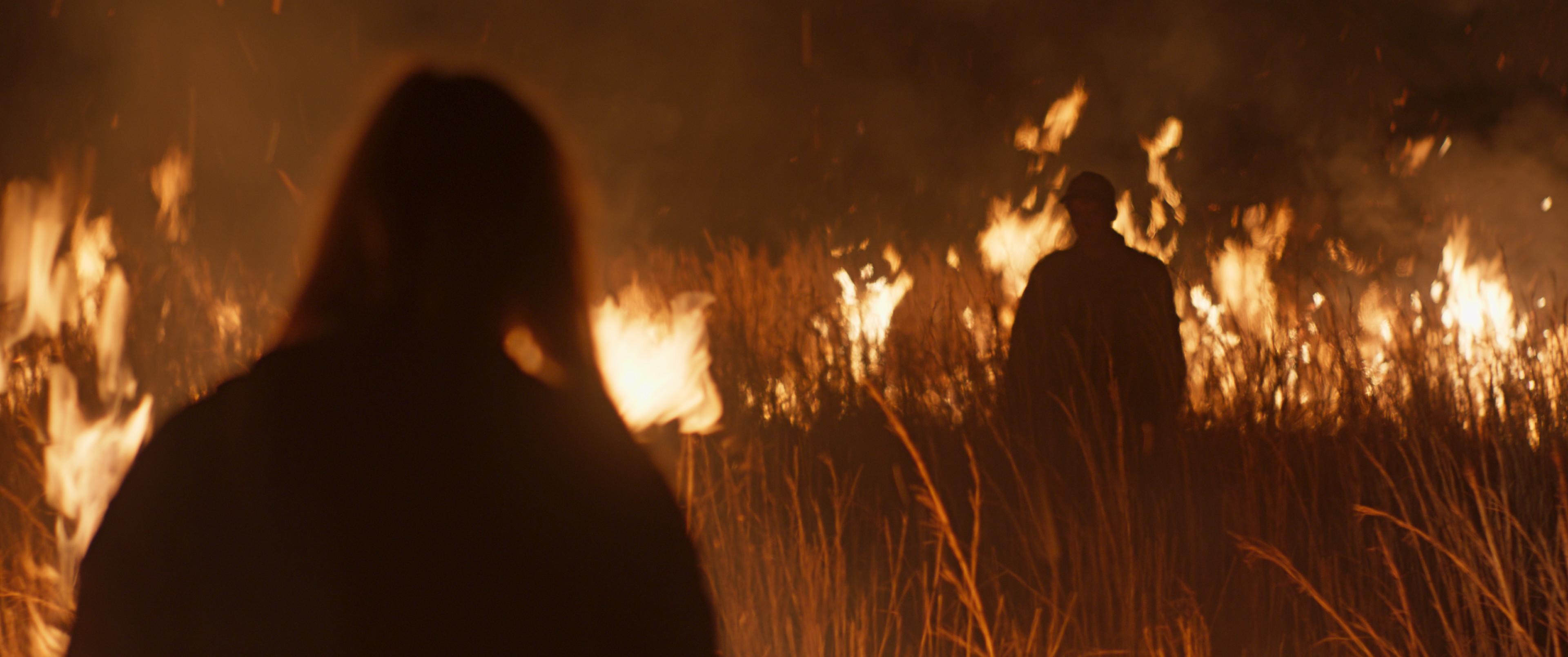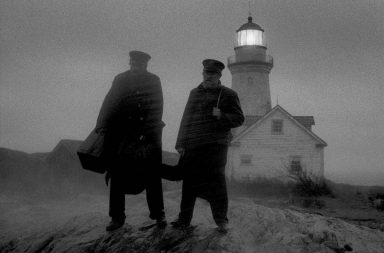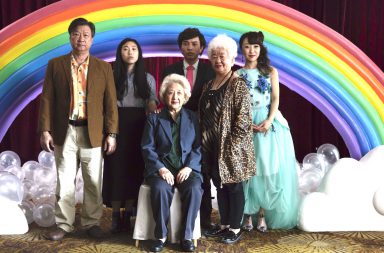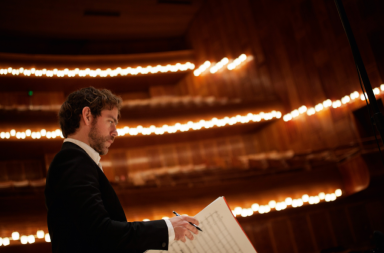One year after Loveless won the Jury Prize at the Cannes Film Festival, its composer Evgueni Galperine was back on the Croisette, where we met him a little more than two months after our first interview with him about his emotional, minimalist compositions for Andrey Zvyagintsev’s film. Galperine scored Die Stropers (The Harvesters), the first feature film by South African director Etienne Kallos – presented at the “Un Certain Regard” selection – which tells the story of Janno (Brent Vermeulen), a fragile young boy who lives with his mother in Free State, an isolated, rural, and conservative region of South Africa, obsessed with religion and masculinity. One day, Janno’s mother (Juliana Venter) saves Pieter (Alex Van Dyk) from the street, brings him home and asks Janno to accept this stranger as his brother. The arrival of Pieter starts a fight for parental love, as it disrupts in the same time the life of the Afrikaans community.
Kallos grew up in the Free State region, in this forgotten, lost community of white, religious farmers surrounded by menacing mountains. He is no stranger to this atmosphere that perfectly fits this retelling of the myth of Cain and Abel. The way Kallos turns the exploration of the identity and the sexuality of two teenagers into an overwhelming fight for power is, at times, reminiscent of the uncomfortable and unspoken feelings depicted in Loveless. For Kallos’ first effort, Galperine uses many percussions to avoid the emotion being underlined, focusing rather on creating a sound for the ominous, menacing landscape, expanding thereby the mythical dimension of the story and its setting.
Evgueni Galperine, who was one of the nominees of this year’s Cannes Soundtrack Awards for Die Stropers, talked to us about his relationship with director Etienne Kallos and his very peculiar composing process for the film.
How did you meet director Etienne Kallos?
We met through his producer Tom Dercourt. Etienne was looking for a very particular sound, which would be as coloured as the film, a little bit crazy, a little bit pop. Tom, along with Sophie Erbs, the other producer from De Facto, told me the story and I immediately loved it. I felt that it was a completely different world: I didn’t know anything about South Africa, with its community of deeply religious, isolated, White protestant farmers. There is a lot of tension today in that part of the world, farmers are killed every day for no particular reason, so they become more and more withdrawn, they hope for the Messiah to come and deliver them so they can live a better life. The Harvesters is the story of a family who adopts two kids and the rivalry between the two brothers. When I saw the first cut, I thought it was excellent and it didn’t need any score. But then I thought about it, and after I met the director, we thought that the score could, on one hand, make the film more accessible, guiding the experience by bringing a dimension of mystery, and that it would be linked to the location on the other hand. South Africa’s landscapes are very particular, with its huge, massive mountains, like a threat over the plains, so we thought that the score could be the voice of these landscapes, like it would be the voice of God that would be interpreted in all the details by the inhabitants. Etienne liked the idea which fitted his very precise vision: the Afrikaans folklore is as distinctive as the language, which is unlike anything you can hear. Same for the film’s music, which is a very strange kind of country music, with accordion, guitar, stringed instruments… It is characteristic of the place, but at the same time, it isn’t folklore at all. I think of it more like a reflection of the folklore echoed by this divine presence I was talking about, in a completely destructurated way. Etienne, for a reason that nobody could explain – not even him – wanted taiko, which is a traditional Japanese instrument. I was sceptical about that, so were the producers, but in the end, we blended it with other instruments and it fitted this universe perfectly. We created a sonic alphabet with glissandos on the guitar, a double bass that we played in such a way that it sounded like a foghorn, the accordion, on which we worked hard with the accordionist to reach specific sonorities…
The film’s subject is quite personal to the director, and you arrived on the project when it was in post-production. How was the preparatory work with Etienne?
He is someone with a very precise vision. He knows perfectly well that world, its sounds, its instruments, its locations, so his musical senses are quite developed. For the first minutes of one of the scenes, we developed the score together. We moved some pieces, removed some instruments, added some others… He has such a precise vision that it would have been impossible for me to get 100% of what he wanted. I had never worked with a director who was that physically present, it was almost like two composers collaborating. And it is an interesting thing, because you can try daring things more easily: if he likes it, then great, and if it he doesn’t, you can immediately try something else. When you work alone, you have to send over your compositions, wait for an answer… Everything becomes heavier. In the way I worked with Etienne, I could just go and try unexpected things and say, “What if we try this?” That’s cool because generally, especially when you don’t know the director, you don’t try crazy things from the very start, you rather try to find what he’s expecting from you.
Did the choice of the instruments was also something you decided together?
We did it by mutual agreement. One day, he came to my place, I made him listen to something I did in which I put a whistle. It was something I tried, it sounded a bit weird but I thought it would sound good on these landscapes, and he told me, “That exactly what I want.” Some other composers he met before me said to him that they thought whistling sounded a bit too cliché. Now, it’s a farmer’s world, and whistling indeed is a common thing for them, they use it to bring back their horses, their cows. In the end, this whistle became an emblematic element of the score. Later, we thought about other instruments together, like the banjo, but it didn’t work so we dropped it.
Your working process together is very interesting, especially when you know that it’s a first feature film.
It’s true. I think that I wouldn’t have taken this project a few years ago. I would rather have stayed alone in my studio and asked him to come by so I could show him what I would have done, but I wouldn’t have agreed to do 50% of the work with him. I would have thought that it would be a way to deprive me of my own work. Today, I am a little older and a little less stupid, and I also think that there was no other way to understand this world, which I didn’t know at all and which is so far from me. The complicated thing when you do a first feature film is that you don’t know how far you are daring to go with the composer. In the end of the day, though, I’m glad because he helped me a great deal to compose the score, and I’m the only one to hold the rights (laughs)!
Interview conducted, transcribed, translated and edited by Marine Wong Kwok Chuen & Valentin Maniglia





